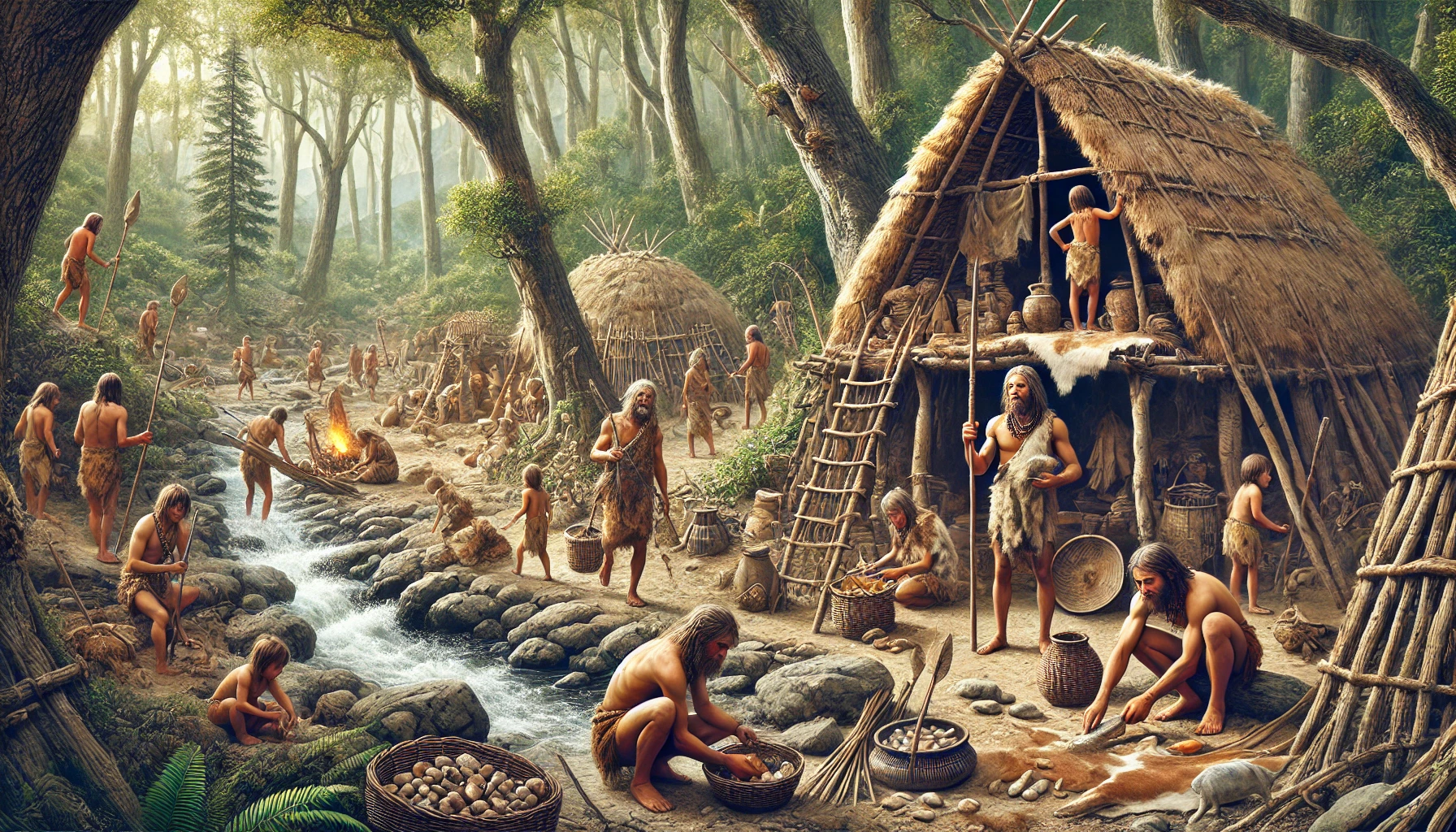
First Study of Men
Cultural event
After the completion of their study, the elves were fascinated by the beliefs and practices of the men of Atanor.
They saw that humans still lived as hunter-gatherers, moving from place to place in search of food and resources. Their dwellings were simple, usually made of materials found in the surrounding environment, such as animal hides or woven branches. At this point in history, men lived in small communities that were often led by a single person or family. They had no formal governments or large-scale social structures. Instead, decision-making was done through consensus and cooperation, with each member of the community contributing to the group's survival. Men were generally egalitarian, with no formal hierarchies or class distinctions. However, there were often gender roles and expectations that dictated the types of work each sex was responsible for. Men were primarily responsible for hunting and fishing, while women were in charge of gathering wild plants and roots, preparing food, and caring for children. Men relied on nature to provide them with food, clothing, and shelter, but did not seem to revere it or have any deep spiritual connection with it like the elves. Humans were however knowledgeable about the plants and animals in their environment, and made use of most parts of the animals they hunted, using the bones for tools and weapons, the hides for clothing and tents, and the shells for cooking vessels. They also made tools out of stone, such as knives, axes, and arrowheads. Humans believed in a trio of gods which intrigued the elves, as it was vastly different from their own beliefs. The first god Daghda, Sky Father, believed to be responsible for the creation of the world, was seen as a powerful and omnipotent force, but also somewhat distant and removed from the lives of men. The second god Belenus, the Sun God, was believed to bring goodness, prosperity, and warmth to the world, and was highly respected and revered. The third and final god Arianrhod, the Moon Goddess, was seen as a darker force, responsible for death, decay, and danger. The elves were fascinated by the simplicity of the men's beliefs and their lack of connection to the natural world. This further cemented their own role as caretakers of the world, and the need for maintaining a balance and respect for the natural world. Previous event
